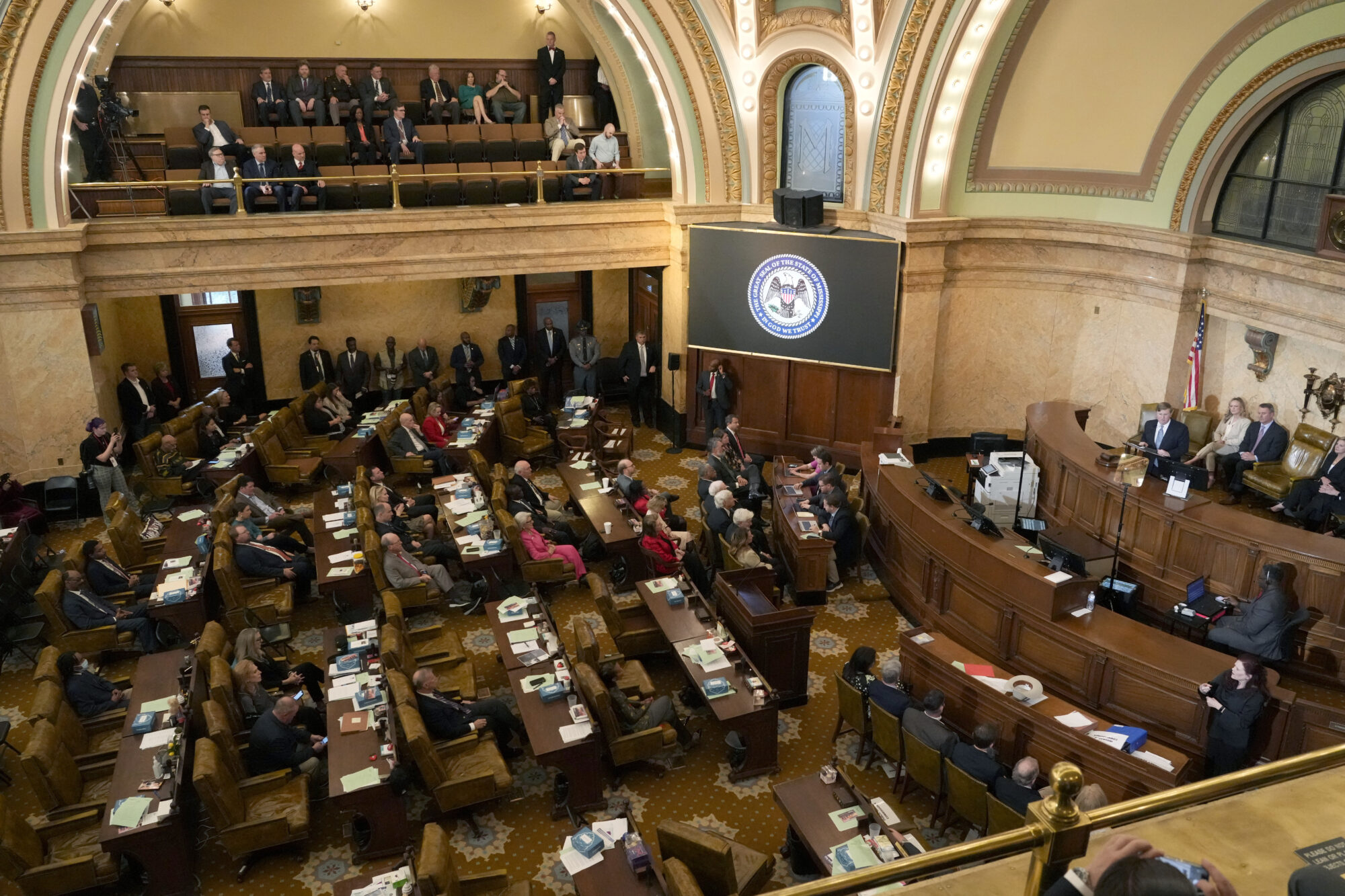
The Mississippi Legislature gaveled in and out for the final time during the 2019 legislative session on March 29, 2019. This is 9 days before the scheduled Sine Die day of April 7.
Hear what leaders had to say about the session:
This year the House and Senate tackled big items like: Human Trafficking bill, Criminal Justice Reform, a teacher pay raise, Israel support act, passage of a Constitutional Resolution, a restrictive abortion bill, the Broadband bill and redistricting of Senate District 22.
Let’s break it down.
The Broadband Bill, HB 366:
Within the first few weeks of session the Broadband bill, which will allow for co-ops to have the opportunity to provide broadband service to more rural communities that have otherwise been without options, was passed with relative ease through the House and Senate.
The bill was authored by Speaker of the House Philip Gunn who said “This is certainly something that is needed. Getting technology to those all across the state is beneficial to everyone.”
It was first passed through the House with minor amendments made, on a vote of 115-3. When it made it to the Senate it passed unanimously.
The bill Governor signed the bill into law before January was finished.
Israel Support Act of 2019, HB 761:
Entitled the Israel Support Act of 2019 the bill, which has already been signed by the Governor, will require the Department of Finance and Administration to compile a list of companies that boycott Israel.
HB 761, authored by Rep. Donnie Bell, would also prohibit the Public Employees Retirement System and State Treasurer from investing in those companies.
The bill passed the House on Wednesday, February 13 and was followed by a tweet from the Governor saying “Mississippi stands with Israel.”
He went on to sign the bill into law just two days later.
The Heartbeat Bill, SB 2116:
Both the House and the Senate offered nearly identical bill this year that would require a physician to check for a heartbeat before performing an abortion. It would also make it illegal to perform an abortion if a heartbeat is detected.
A heartbeat is typically detected around the 6-8 week gestation period.
The Senate’s bill was chosen as the one to prevail and passed both chambers, but not without some arguments. Many worried that this bill would only send the bill to the court systems after a 15-week abortion bill that was passed last year, was overturned by a Mississippi judge. It was rendered unconstitutional.
However, despite the criticism the bill was passed in the Senate by a vote of 34-14 and in the House at 78-37. It was then sent to the Governor to sign.
“We are going to try and protect that child whenever we can. We think this is showing the profound and respect and desire of Mississippians to protect the sanctity of that very unborn life whenever possible,” said Governor Bryant.
As concerns suggested, the law has been challenged by the Center for Reproductive Rights who have filed suit against it. It will now be up to the courts to decide whether or not it is constitutional.
Criminal Justice Reform, HB 1352:
Criminal justice reform has been something most legislators have pushed for in the state of Mississippi. HB 1352 will include provisions to expand drug courts in Mississippi and do more in assisting people who are leaving the state’s prison system to secure employment. The bill was authored by Rep. Jason White and will also allow those with nonviolent offenses to apply for time expungement in order to improve their job search chances.

This bill will also redefine how “drug courts” operate, reassigning them as “intervention courts.” Here a priority will be placed on rehabilitation for those who suffer from substance abuse. The bill would also create an advisory committee that will create statewide plans and models for monitoring aspects of these courts.
The bill was passed in the House on a vote of 110 to 5 and in the Senate by 49 to 2, clearly showing bipartisan support. However instead of concurring, they invited conference and passed the bill. Governor Bryant was also an early supporter of the bill and it is expected that when it reaches his desk he sign it, making it law.
Teacher Pay Raise, SB 2770:
Nearing the end of session one bill causing an uproar in the Legislature was what the state of a teacher pay raise would be. In the end House and Senate members agreed on a one time raise of $1,500 effective July 1, 2019.
The conference report appropriation was filed on Wednesday 27 right at 10:00 p.m. and gave everyone their answer. Teachers would not receive the $4,000 raise as amended by the House, but would not be so low as a $1,000 pay raise over the next two years as originally authored in the bill.
The $1,500 raise would cost around $58 million according to new budget numbers.
“The House just passed a $1,500 pay raise for Mississippi’s hard-working teachers. This $58 million annual investment into teachers will ensure that we can better recruit and retain those who prepare our children for college and a career,” said Speaker Philip Gunn.
While many on social media showed their distaste for the final number, those involved in the passage of the bill such as Rep. Bennett and Sen. Tollison said this was the appropriate amount to push at this time and in the event revenue growth continues, so will teacher pay raises.
Redistricting of Senate District 22, JR 202:
A lawsuit filed by three African American plaintiffs including former state senator from Yazoo City Joseph Thomas, sparked the need to redraw the lines for Senate District 22 currently held by Senator and Appropriations Chairman Buck Clarke.
The suit ruled that the district lines, as redrawn per law in 2012 after the 2019 census, violated Section 2 of the federal Voting Rights Act.
Senators presented a new plan that would pull from Senate District 13, held by Sen. Willie Simmons to set the black voting population percentage to a more fair number. By redrawing the lines of SD 22 and SD 13 it would change the percentage of black voters in SD 22 from 51% to 58% and from 9% to 62% in SD 13.
The bill does include a clause that in the event that an appeal wins in the court case, the redistricting bill is no longer effective and would revert back to the original lines of 2012.
Convention of States Resolution, SR 596:
On the last days of session, the Mississippi House of Representatives and Mississippi Senate passed Senate Concurrent Resolution 596. The bill also brought its fair share of controversy among party lines.
The amendment calls for a Convention of States to approve amendments that would restrict the fiscal restraints of the federal government, effectively limiting their power.
SC 596 suggests that its application is necessary due to the current national debt caused by federal spending, what they say is an overstep into states, and that it is the states responsibility to protect the rights of the people living therein.
The bill was passed in the House on a vote 69-49, and in the Senate a few days earlier, by 32-17.
Mississippi now joins 15 other states that have passed the amendment across the United States including: Alabama, Florida, Texas, and Arkansas.

















